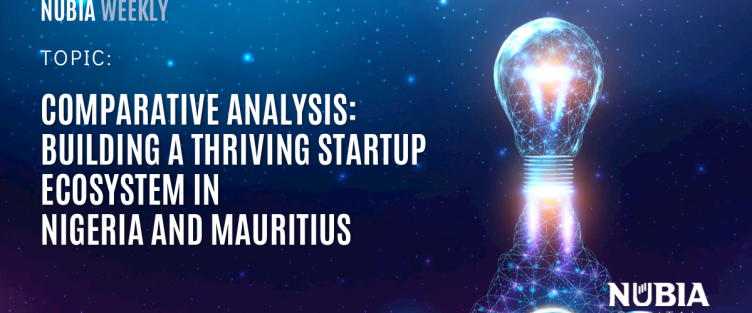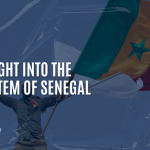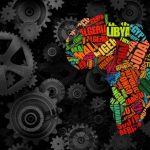Introduction
Happy families share a common set of attributes which lead to happiness, while any of a variety of attributes can cause an unhappy family. In our startup ecosystem, all countries that are thriving economically have an enabling ecosystem and stand on five simple pillars of growth while those countries that are unhealthy could be suffering from any deficiency or negativity related/not related to the five pillars. Similarly, all organisations that have a healthy innovation culture live by similar principles and those that don’t, have diverse and wild causes.
These pillars of a thriving startup ecosystem include Human capital, Infrastructure, Digital government and regulatory framework, Digital skills and education and Funding and Finance.
In Africa, the amount of work that has gone into creating, building and consolidating these pillars is obvious in the climate of those countries. The big firms prefer to domicile in those climates, the people enjoy the benefits and other non-performing countries lose their precious human capital. Oftentimes the government gets the process wrong. When these pillars are intentionally built, the climate and clout will follow but when there is an obvious neglect of even one of the aforementioned verticals, the environment cannot be sustainable enough for long-term success. Seminars, conferences, partnerships and other elementary conversations cannot create a thriving ecosystem because they will crumble without the pillars.
What is Mauritius known for?
Mauritius is known for its captivating natural landscapes, ranging from pristine beaches to lush forests. The nation’s cultural tapestry is woven from diverse ethnic backgrounds, leading to a rich blend of traditions, festivals, and cuisines. Its longstanding political stability since independence has paved the way for sustained economic growth, transitioning from an agrarian economy to a prosperous one driven by tourism, textiles, and financial services.
With a remarkable Human Development Index, Mauritius places a strong emphasis on the well-being of its residents. The nation’s commitment to environmental conservation shines through its efforts to safeguard its unique biodiversity and marine ecosystems. As a result, Mauritius has become a favoured destination for travellers, offering luxury resorts, water sports, and breathtaking coral reefs.
What is Nigeria known for?
Nigeria is known for its diverse cultural heritage which stands out in its captivating Nollywood film industry and globally resonant music scene, from Afrobeats to Highlife. Nigeria holds economic significance as a major oil producer and exporter, while also fostering a landscape of entrepreneurial innovation and technological startups.
Nigerian cuisine delights with its array of flavours are also infamous throughout Africa featuring iconic dishes like jollof rice and suya. The nation’s cultural identity finds expression in vibrant festivals, such as the Durbar and Osun-Osogbo, and its literary tradition boasts luminaries like Chinua Achebe and Chimamanda Ngozi Adichie. With a population exceeding 200 million, Nigeria’s demographic prominence solidifies its influential position on the African continent.
In essence, Nigeria’s reputation is shaped by its cultural diversity, cinematic achievements, musical contributions, economic significance, innovation, culinary delights, festive traditions, literary achievements, sports enthusiasm, and demographic importance.
Comparing the ecosystems
Its (Mauritius) open trade policy – (Digital Government and Regulation)
Mauritius has a profound open trade policy. This has played an indispensable role in upholding progressive expansion. This has led to a remarkable metamorphosis of Mauritius – from its erstwhile state as a monoculture-driven economy to a dynamic and multifaceted economic powerhouse that magnetises enterprises from all corners of the world. Mauritius offers and presents herself as a fertile economic ground for businesses, and ushers herself as a servant with a hospitable investment destination spanning a diverse spectrum of more than 10 industries
For instance, the relationship between Mauritius and the United Kingdom. Startups and SMEs hailing from the United Kingdom and embarking on establishing operations in Mauritius have exemptions from taxes on both capital gains and dividends. Additionally, governmental incentives and subsidies for skill enhancement not only facilitate workforce development but also empower personnel to adeptly leverage the ceaselessly evolving landscape of business technology.
The government and the environment must render itself as a servant leader – ready to help the citizens thrive and listen to the needs of its citizens, not as a ruler, enforcing rules it considers favourable or otherwise. In order words design thinking can be applied to states and ecosystem building. This is the first approach in creating an enabling environment.
Ebene Cyber City – (Infrastructure)
According to Paul Doherty, President and CEO of the digit group, “Smart cities are emerging due to the convergence of market conditions, technology innovation, social wants and government needs and the migration to urban environment that has accelerated on a global scale that dwarfs any previous mass movement of people in history”
Ebene (pronounced in Mauritian Creole as [ebɛn]) stands as a suburban enclave adjacent to Quatre Bornes, Mauritius, situated 15 kilometres (9.3 miles) to the south of the capital city, Port Louis. The inception of this locale took place in November 2001, marking the commencement of an ambitious endeavour to establish the suburb as an epicentre for information technology within Mauritius, simultaneously fostering connectivity between African and Asian markets. The core objective was to forge a cutting-edge zone for corporate offices, thereby infusing vitality into the nation’s economic landscape.
Notwithstanding its numerous imperfections, the sprawling 64-hectare campus boasts swift and seamless internet connectivity – a rarity in the country in the early 2000s. It is fortified with backup electricity generators to navigate recurrent power interruptions and intricate networking systems to ensure uninterrupted online presence for substantial enterprises.
Can Nigeria invest heavily in cyber cities? Not just a place that turned out or accidentally became a digital area in a city. We mean an intentional investment into a place set apart for creating hi-tech digital solutions far from the traffic and noise of the city?
Digital Skills
Nigeria is an ecosystem leader when it comes to digital skills. The citizens are paving the way to upskill themselves, innovate and build solutions. Private institutions are created every day to improve educational facilities and programmes that are long overdue for change.
Digital skills are the accessibility of requisite skills indispensable for harnessing digital infrastructure and platforms. The world bank posits that Nurturing a thriving, dynamic, and all-encompassing digital economy hinges upon a substantial reservoir of skilled labour. Laying the groundwork for a flourishing digital economy necessitates the cultivation of a workforce adept in digital capabilities and a populace well-versed in digital literacy. The digital economy mandates heightened levels of human and capital investment from both government bodies and private enterprises to cater to ongoing and future digital skills requirements. Consequently, individuals must undergo upskilling in tandem with enhancements in digital infrastructure to adapt to the ever-evolving digital landscape seamlessly. The workforce’s capacity to innovate and proficiently engage with digital technology is intrinsically linked to the broader digital economy.
Conclusion
Nigeria is a blessed nation with people who are hardworking and ever ready to push limitations off their way to achieve a thriving digital economy. Despite the challenges of the government, Lagos is still the most significant startup ecosystem in Africa. This is the first among 52 countries. However, Mauritius is an enabling ecosystem that has tried to put the five pillars of a digital economy in place. This is to say above all that the government of the states and the federation of Nigeria must employ resources to adopt these pillars. It is not about looking like Mauritius, it is about using the same principles they used that evidently make a family happy.

Nubia way is a mindset. A mindset that believes in Africa and the potential of its collaboration to achieve a digital, tech-enabled and innovative continent.
The Nubia way is that strong belief that beneath each country of the continent is Gold – in the form of human capital, ideas and product that solves the challenges of our continent.
This is the Nubia Way.




